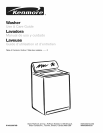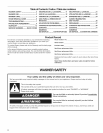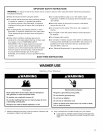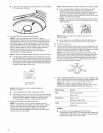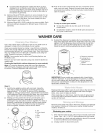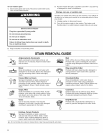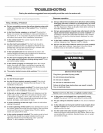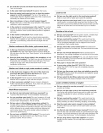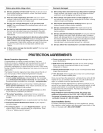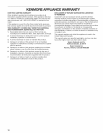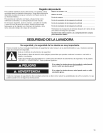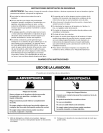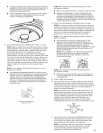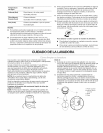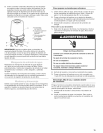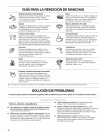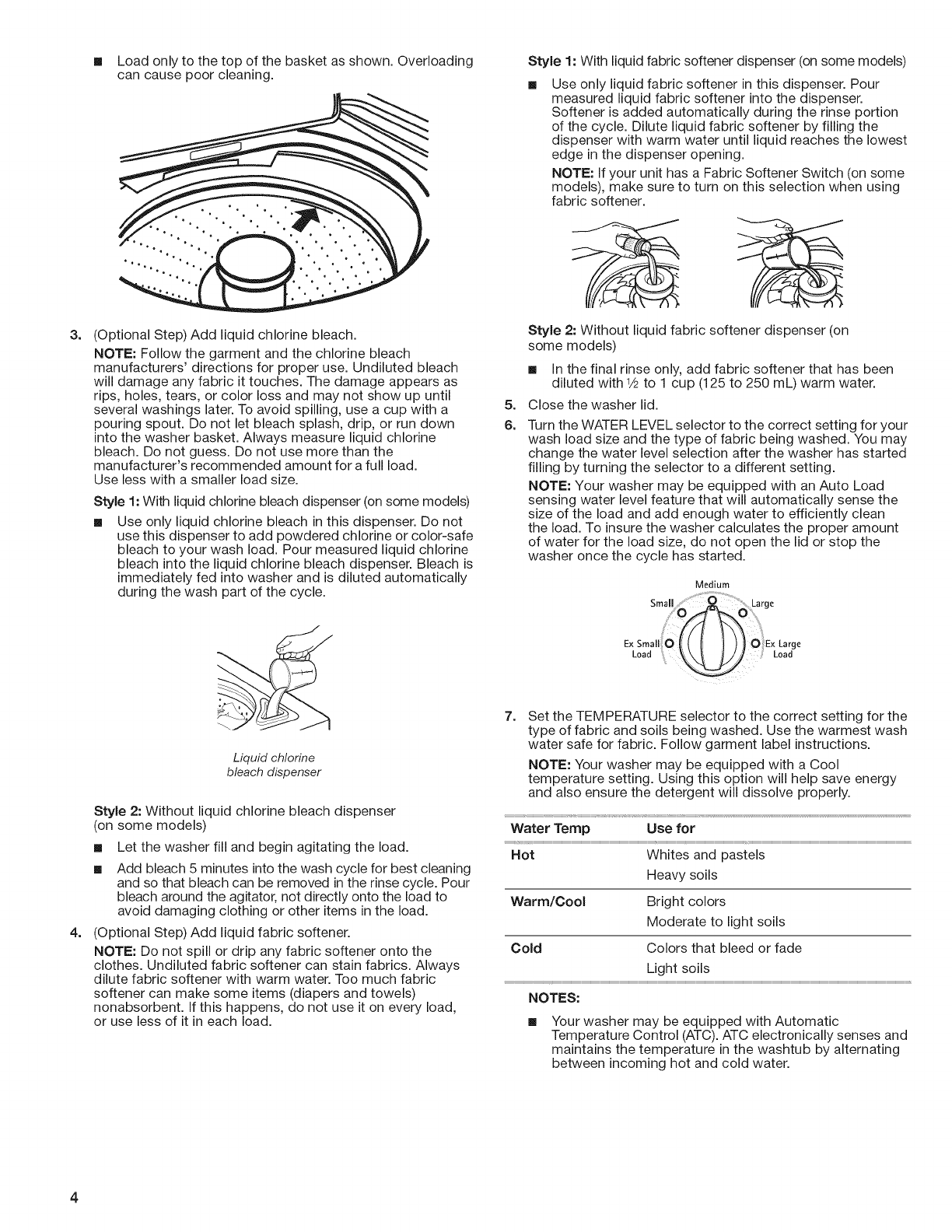
3=
4=
[] Load only to the top of the basket as shown. Overloading
can cause poor cleaning.
(Optional Step) Add liquid chlorine bleach.
NOTE: Follow the garment and the chlorine bleach
manufacturers' directions for proper use. Undiluted bleach
will damage any fabric it touches. The damage appears as
rips, holes, tears, or color loss and may not show up until
several washings later. To avoid spilling, use a cup with a
pouring spout. Do not let bleach splash, drip, or run down
into the washer basket. Always measure liquid chlorine
bleach. Do not guess. Do not use more than the
manufacturer's recommended amount for a full load.
Use less with a smaller load size.
Style 1: With liquid chlorine bleach dispenser (on some models)
[] Use only liquid chlorine bleach in this dispenser. Do not
use this dispenser to add powdered chlorine or color-safe
bleach to your wash load. Pour measured liquid chlorine
bleach into the liquid chlorine bleach dispenser. Bleach is
immediately fed into washer and is diluted automatically
during the wash part of the cycle.
Liquid chlorine
bleach dispenser
Style 2: Without liquid chlorine bleach dispenser
(on some models)
[] Let the washer fill and begin agitating the load.
Add bleach 5 minutes into the wash cycle for best cleaning
and so that bleach can be removed in the rinse cycle. Pour
bleach around the agitator, not directly onto the load to
avoid damaging clothing or other items in the load.
(Optional Step) Add liquid fabric softener.
NOTE: Do not spill or drip any fabric softener onto the
clothes. Undiluted fabric softener can stain fabrics. Always
dilute fabric softener with warm water. Too much fabric
softener can make some items (diapers and towels)
nonabsorbent. If this happens, do not use it on every load,
or use less of it in each load.
5=
6.
Style 1: With liquid fabric softener dispenser (on some models)
[]
Use only liquid fabric softener in this dispenser. Pour
measured liquid fabric softener into the dispenser.
Softener is added automatically during the rinse portion
of the cycle. Dilute liquid fabric softener by filling the
dispenser with warm water until liquid reaches the lowest
edge in the dispenser opening.
NOTE: If your unit has a Fabric Softener Switch (on some
models), make sure to turn on this selection when using
fabric softener.
Style 2: Without liquid fabric softener dispenser (on
some models)
[] In the final rinse only, add fabric softener that has been
diluted with 1/2to 1 cup (125 to 250 mL) warm water.
Close the washer lid.
Turn the WATER LEVEL selector to the correct setting for your
wash load size and the type of fabric being washed. You may
change the water level selection after the washer has started
filling by turning the selector to a different setting.
NOTE: Your washer may be equipped with an Auto Load
sensing water level feature that will automatically sense the
size of the load and add enough water to efficiently clean
the load. To insure the washer calculates the proper amount
of water for the load size, do not open the lid or stop the
washer once the cycle has started.
Medium
Sma _ Large
o
ExSma,O _ E,_Large
Load _ Load
7=
Set the TEMPERATURE selector to the correct setting for the
type of fabric and soils being washed. Use the warmest wash
water safe for fabric. Follow garment label instructions.
NOTE: Your washer may be equipped with a Cool
temperature setting. Using this option will help save energy
and also ensure the detergent will dissolve properly.
Water Temp Use for
r
Not Whites and pastels
Heavy soils
Warm/Cool Bright colors
Moderate to light soils
Cold Colors that bleed or fade
Light soils
NOTES:
[] Your washer may be equipped with Automatic
Temperature Control (ATC). ATC electronically senses and
maintains the temperature in the washtub by alternating
between incoming hot and cold water.
4



